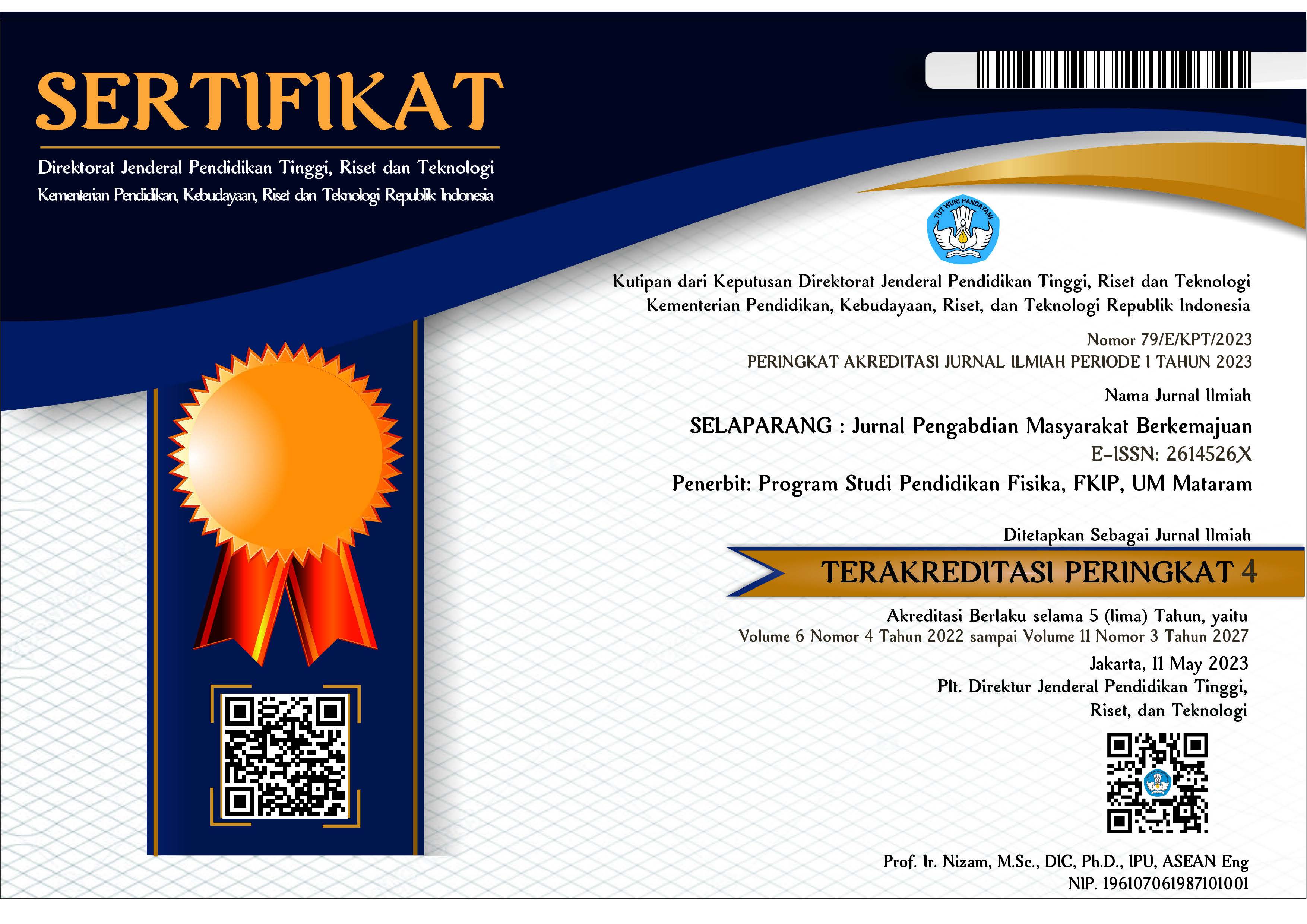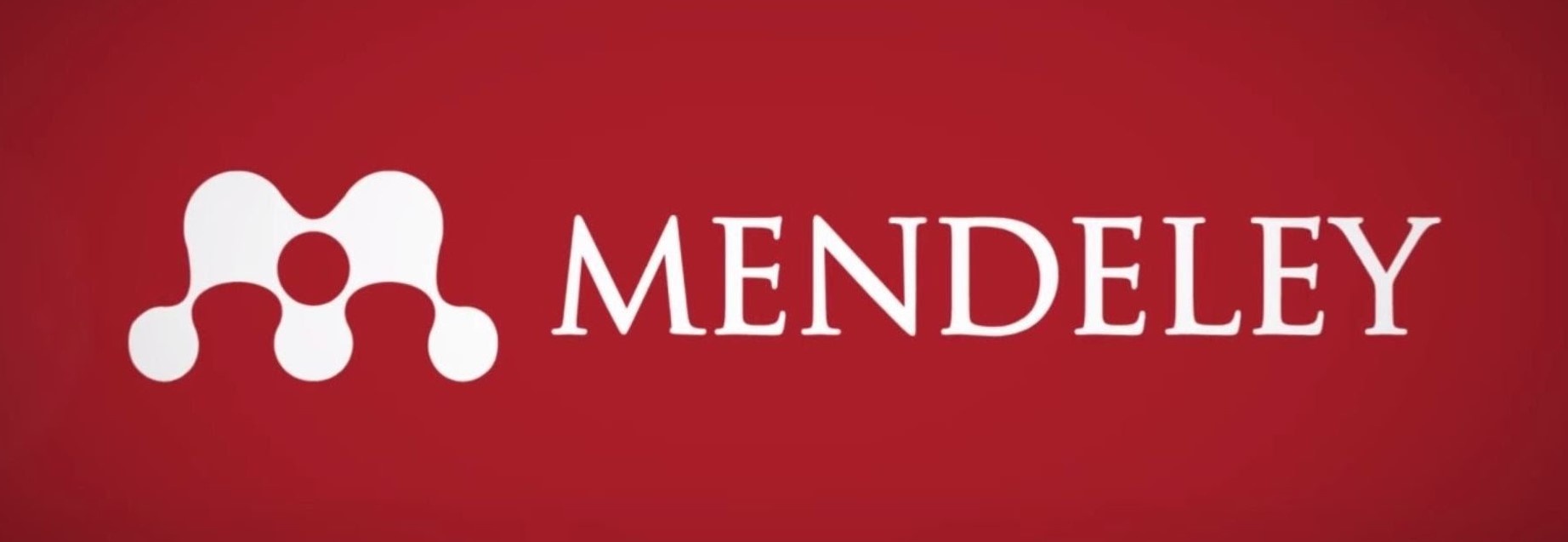Pelatihan metode 4MW (Membaca, Menulis, Menghitung, Mengaji dan Kewirausahaan) dengan anak-anak dari Panti Asuhan Rumah Anak Tercinta, Kapala Batas-Penang, Malaysia
Abstract
Abstrak
Pemberdayaan anak-anak panti asuhan melalui metode 4MW (Membaca, Menulis, Berhitung, Mengaji, dan Berwirausaha) di Malaysia menjadi fokus penting untuk meningkatkan pengetahuan, kesejahteraan ekonomi dan sosial. Anak-anak di panti asuhan yang dikelola memiliki potensi yang besar, namun seringkali terkendala oleh masalah keterbatasan akses infrastruktur, permodalan, dan kurangnya pemahaman dalam memanfaatkan teknologi informasi. Program Pengabdian Mandiri Internasional melalui penerapan metode 4MW digadang-gadang sebagai solusi yang dapat meningkatkan pengetahuan, keterampilan membaca, menulis, berhitung, mengaji dan jiwa kewirausahaan anak-anak panti asuhan. Kendala utama yang dihadapi antara lain: kurangnya waktu untuk berlatih membaca dan berhitung, terbatasnya akses dan sumber daya untuk pelatihan, serta mahalnya biaya untuk penggunaan internet. Selain itu, stereotip sosial dan keterbatasan waktu juga menghambat keterlibatan penuh anak-anak panti asuhan dalam dunia pendidikan dan jiwa kewirausahaan. Pusat Studi Gender dan Anak (PSGA) Universitas Sumatera Utara (USI) bersama dengan Pusat Kajian Wanita dan Gender (Kanita) Universiti Sain Malaysia (USM) membuat program Pengabdian Internasional Mandiri bersama Panti Asuhan Rumah Kesayangan di Penang, Malaysia melalui Program 4MW. Program pengabdian masyarakat ini bertujuan untuk memberikan pelatihan dan pendampingan agar anak-anak panti asuhan memahami dan lebih mahir dalam membaca, menulis, berhitung, mengaji dan berwirausaha. Penguasaan konsep 4MW mencapai hasil 90% dimana tercapai peningkatan pengetahuan 4 MW, upaya pemberdayaan anak-anak panti asuhan di bidang pendidikan dan ekonomi, serta menumbuhkan jiwa kewirausahaan sejak dini bagi anak-anak panti asuhan.
Kata kunci: anak panti asuhan; 4MW; USM; USU; pelayanan internasional
Abstract
Empowering orphanage children through the 4MW method (Reading, Writing, Counting, Reciting the Koran, and Entrepreneurship) in Malaysia is an important focus to improve knowledge, economic and social welfare. Children in orphanages that are managed have great potential, but are often constrained by problems of limited access to infrastructure, capital, and lack of understanding in utilizing information technology. The Mandiri International Service Program through the application of the 4MW method is predicted to be a solution that can improve the knowledge, skills of reading, writing, counting, reciting the Koran and the entrepreneurial spirit of orphanage children. The main obstacles faced include: lack of time to practice reading and arithmetic, limited access, and resources for training, and high costs for internet use. In addition, social stereotypes and time constraints also hinder the full involvement of orphanage children in the world of education and entrepreneurial spirit. The Center for Gender and Child Studies (PSGA) of the University of North Sumatra (USI) together with the Center for Women and Gender Research (Kanita) of Universiti Sain Malaysia (USM) created an Independent International Service program with the Rumah Kesayangan Orphanage in Penang, Malaysia through the 4MW Program. This community service program aims to provide training and assistance so that the children of the orphanage understand and are more proficient in reading, writing, counting, reciting the Koran and entrepreneurship. Built up of 4MW concept will open up new opportunities in understanding in the field of education. This program supports efforts to empower children of the orphanage in the fields of education and economy, fostering an early entrepreneurial spirit for children of the orphanage.
Keywords: orphanage children; 4MW; USM; USU; international service
Keywords
Full Text:
PDFReferences
Abidin, Y., & M. (2017). Literacy Learning: Strategies to Improve Mathematics, Science, Reading, and Writing Literacy Skills. In Jakarta: Bumi Aksara.
Astuti, R., & Suhardi, T. (n.d.). Implementation of the 4M Method to Improve Agricultural Skills among Village Youth. Journal of Sustainable Agriculture, 2(2), 15–22.
Ayu Raniah, D., Ika Sari Rakhmawati, N., Negeri Surabaya, U., Lidah Wetan, J., Wetan, L., Lakarsantri, K., & Timur, J. (2023). Improving Numeracy Skills of 5-6 Year Old Children through STEAM Learning and Loose Parts Materials. Journal of Education. Journal of Education, 06(01), 7030–7040.
Fitriana, D., & Arifin, M. (2023). 4M Method as a Solution to Improve Work Skills in Orphanages. Journal of Social and Humanities, 04(01), 77–84.
Hidayati, L., & Rahmawati, N. (2021). Increasing Micro Business Productivity Through the 4M Method in Orphanages. Community Development Journal, 03(01), 45–50.
Khamidah, N. (2018). Entrepreneurship Education to Improve Life Skills of Students at the Modern Islamic Boarding School for Orphans and Dhuafa Madania. Yogyakarta (Master’s Thesis, Islamic University of Indonesia).
Lestari, D., & Iskandar, I. (2021). Application of the 4M Method to Improve the Quality of Entrepreneurship Education in Secondary Schools. Journal of Education and Entrepreneurship, 09(02), 112–120.
Mujahid, A., & Fauzan, I. (2020). Optimization of the 4M Method in Entrepreneurship Training Programs in Village Communities. Journal of Community Empowerment, 06(01), 23–30.
Nabilah, S., Pujiastuti, H., & Syamsuri, S. (2023). Systematic Literature Review: Numeracy Literacy in Mathematics Learning, Levels, Materials, Models and Learning Media. JIIP - Scientific Journal of Educational Sciences, 06(04), 2436–2443.
Sari, AP, & Wardi, M. (2020). Implementation of the 4M Method in Community Service to Improve Entrepreneurial Skills among Youth. Journal of Community Service, 05(02), 123–130.
Setiawan, B., & Kusnadi, E. (2022). Development of Handicraft Skills Using the 4M Method in Elementary Schools. Journal of Education and Community Service, 04(03), 67–75.
Susanto, H., & Wahyu, P. (2022). (2022). 4M Method Training to Increase Small Business Productivity in the Community Environment. Journal of Community Service, 7(1), 50-57. Journal of Community Service, 07(01), 50–57.
Zuhri, M., & Nugroho, A. (2023). 4M Method in Developing Small and Medium Enterprises in Cities. Journal of Economics and Community Service, 08(01), 34–40.
DOI: https://doi.org/10.31764/jpmb.v9i2.29929
Refbacks
- There are currently no refbacks.

This work is licensed under a Creative Commons Attribution-ShareAlike 4.0 International License.
______________________________________________________
Jurnal Selaparang
p-ISSN 2614-5251 || e-ISSN 2614-526X
EDITORIAL OFFICE:



















